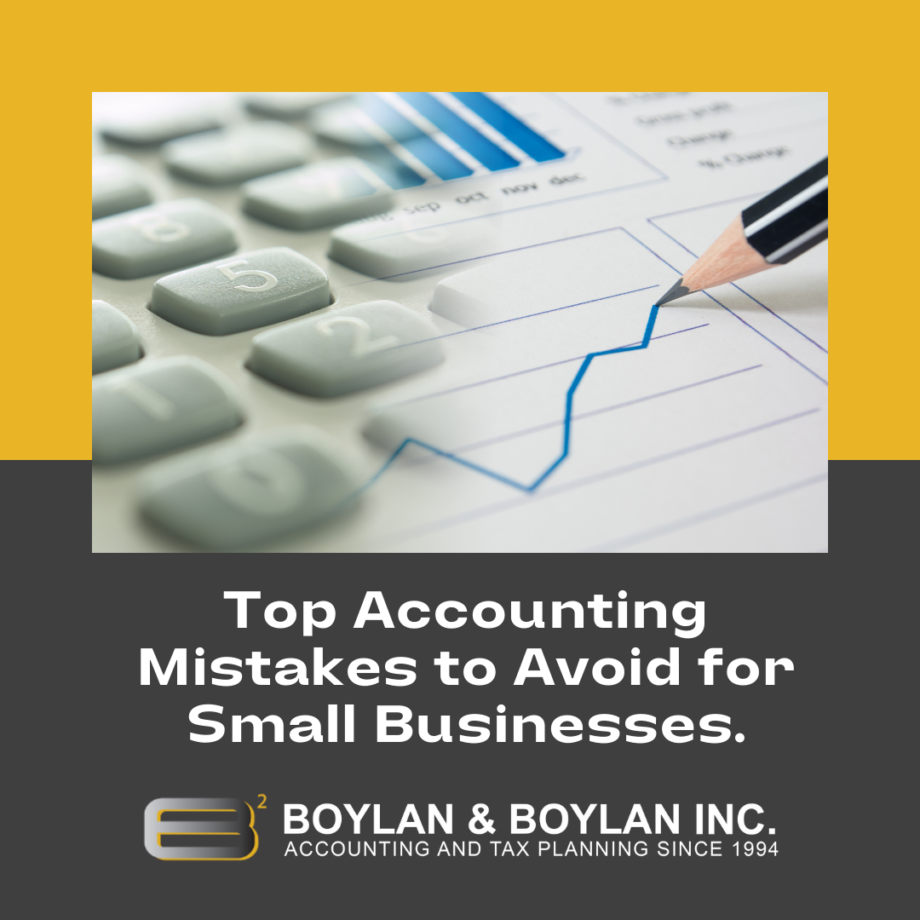Running a small business is challenging, especially when it comes to managing finances. Many small businesses fall into common accounting traps that can hinder their growth and financial stability. Drawing on the expertise of accounting professionals from Boylan and Boylan, this post will delve into the most common accounting mistakes made by small businesses and provide practical advice on how to avoid them.
1. Not Keeping Accurate Records
One of the most frequent accounting mistakes is the failure to keep accurate and detailed financial records. This can lead to a myriad of problems, including cash flow issues, missed tax deductions, and difficulty securing loans.
How to Avoid: Implement a reliable accounting system from the start. Regularly update your financial records and review them to ensure accuracy. Utilize accounting software that suits your business needs, and consider hiring a professional accountant for guidance.
2. Mixing Personal and Business Finances
Small business owners often blur the lines between personal and business finances, making it difficult to track business performance accurately.
How to Avoid: Open a separate bank account for your business and use it exclusively for business transactions. This separation simplifies accounting processes and provides a clear financial picture of your business.
3. Neglecting to Reconcile Bank Statements
Failing to reconcile bank statements with your financial records can lead to unrecognized discrepancies and inaccuracies in your accounting.
How to Avoid: Regularly compare your internal financial records with your bank statements to ensure they match. Any discrepancies should be investigated and resolved promptly to maintain accurate financial records.
4. Poor Cash Flow Management
Inadequate cash flow management is a common issue that can lead to serious financial trouble, including bankruptcy.
How to Avoid: Monitor your cash flow closely and plan for future expenditures. Keep an emergency fund and consider various scenarios in your financial planning to ensure your business can withstand financial downturns.
5. Overlooking Tax Obligations
Many small businesses underestimate their tax liabilities and are unprepared when tax payments are due, leading to penalties and interest charges.
How to Avoid: Stay informed about your tax obligations and set aside funds regularly to cover these liabilities. Consult with a tax professional to ensure you are compliant with current tax laws and taking advantage of any available tax benefits.
6. Not Using Financial Data for Planning
Failing to use financial data for strategic planning is a missed opportunity for growth and improvement.
How to Avoid: Regularly review financial reports and use the insights gained to make informed decisions about your business strategy. Financial data should guide budgeting, investment, and expansion decisions.
7. Underestimating the Importance of Budgeting
A lack of budgeting can lead to overspending and financial strain.
How to Avoid: Develop a realistic budget that reflects your business’s financial situation and goals. Regularly review and adjust your budget to ensure it remains aligned with your business operations and objectives.
8. Ignoring Technological Advancements
With the rapid advancement of technology, failing to update accounting software and processes can result in inefficiencies and errors.
How to Avoid: Stay current with accounting technology trends and invest in software or systems that can improve your financial management. Automation can reduce errors and free up time for strategic planning.
Expert Insights from Boylan and Boylan
According to Boylan and Boylan, many small businesses struggle with financial management due to a lack of understanding and resources. They recommend that small businesses invest in good accounting practices early on and seek professional advice when needed. The key is to view accounting not just as a regulatory requirement, but as a tool for business growth and sustainability.
In conclusion, avoiding these common accounting mistakes can significantly improve the financial health and longevity of a small business. By keeping accurate records, separating personal and business finances, reconciling bank statements, managing cash flow effectively, preparing for tax obligations, leveraging financial data for planning, adhering to a budget, and embracing technology, small businesses can establish a solid financial foundation. The advice from Boylan and Boylan emphasizes the importance of proactive financial management and the benefits of seeking expert guidance to navigate the complex landscape of business accounting.

